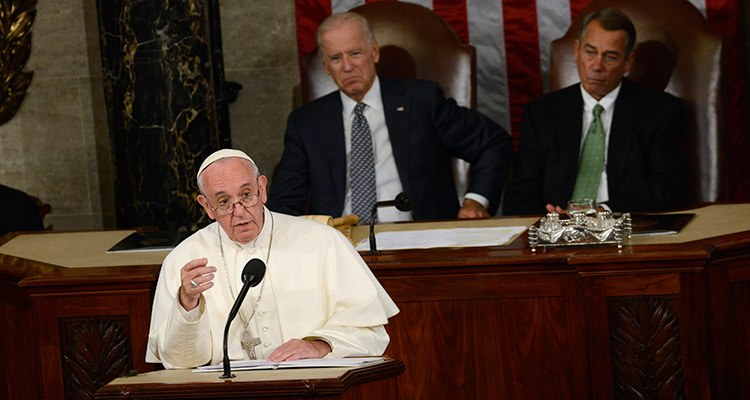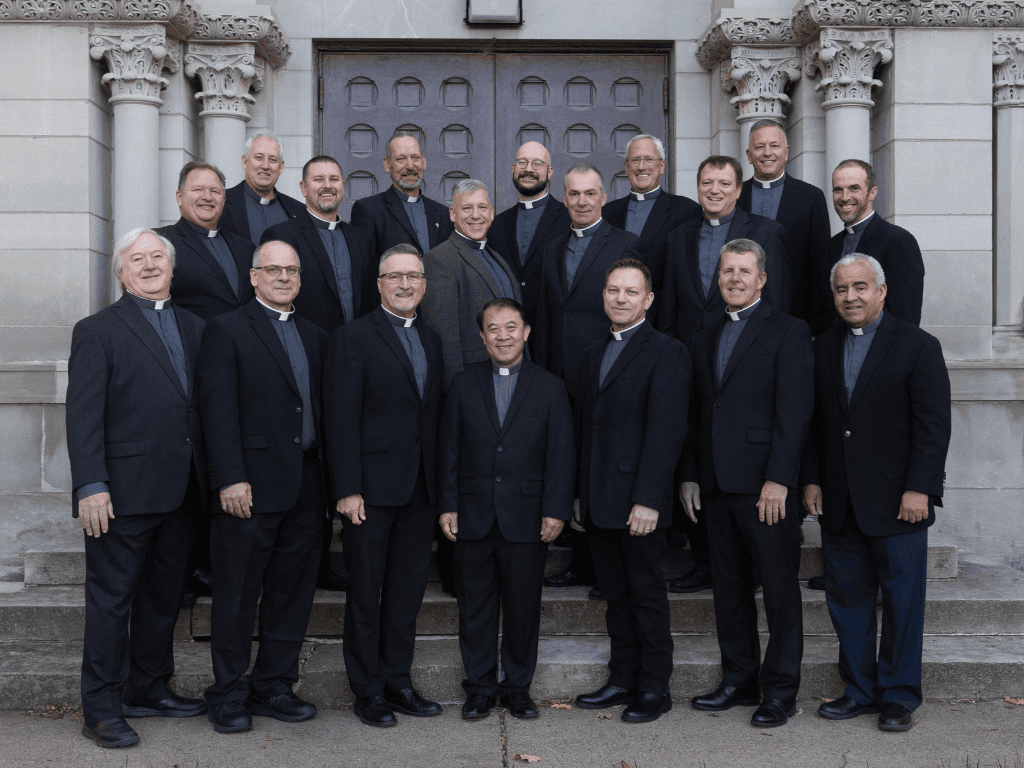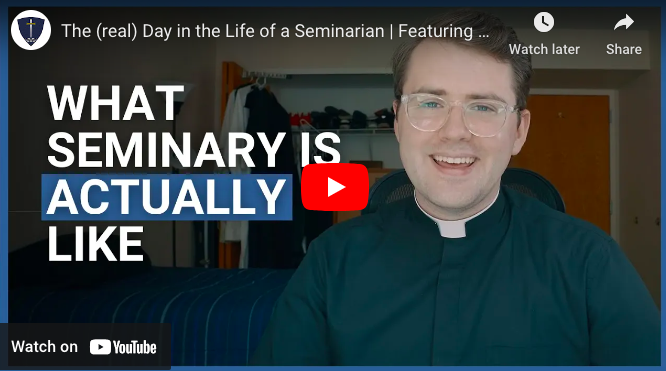House Speaker John Boehner has been inviting popes to address Congress for two decades. For the first time in U.S. history the “Pope of the Holy See,” as he was introduced, addressed a joint meeting of Congress. Pope Francis came as both a head of state and a religious leader. He shared his knowledge of U.S. history and entered into dialogue with it through a lens of shared values. In the process, he also shared the perspective of Catholic social teaching.
In his opening paragraph, he grabbed the attention of his audience when he made reference to “the land of the free and the home of the brave.” Speaking of his own experience as the son of an immigrant, he identified with this land of immigrants, receiving more applause. As he spoke about freedom and about families, virtually everyone on the floor and in the gallery rose to give him a standing ovation. (Four groups, not surprisingly, tended not join in standing ovations: two military leaders in uniform representing political neutrality, four Supreme Court justices representing impartiality, the papal entourage representing the Vatican and the press with a responsibility for objectivity.)
As grounds for dialogue between American values and values of Catholic social teaching, he offered four witnesses: two classic figures from U. S. history (Abraham Lincoln and Martin Luther King Jr.) and two classic figures of American Catholic spirituality (Dorothy Day and Thomas Merton). All four worked to advance the common good.
“Three sons and a daughter of this land, four individuals and four dreams: Lincoln, liberty; Martin Luther King, liberty in plurality and non-exclusion; Dorothy Day, social justice and the rights of persons; and Thomas Merton, the capacity for dialogue and openness to God. Four representatives of the American people,” Francis said.
Within this context, Francis identified social justice issues. He spoke about the need for recognizing the contributions of both the elderly and the young. He drew attention to the importance of offering hospitality to the immigrant. He advocated global abolition of the death penalty, echoing the teaching of John Paul II in Evangelium Vitae. He called for global solidarity to fight poverty and hunger. Echoing Laudato Si’, he called for a “culture of care” in response to an environmental crisis affected by human activity. He advocated dialogue as a means toward peace between nations.
Pope Francis came as an American to address all in the United States through their representatives. These representatives welcomed him warmly and listened attentively as a part of this dialogue.
St. Thomas theology professor Angela Senander will contribute stories to the Newsroom as she attends events surrounding Pope Francis’ visit to the United States. Follow her on Twitter @drsenander.







